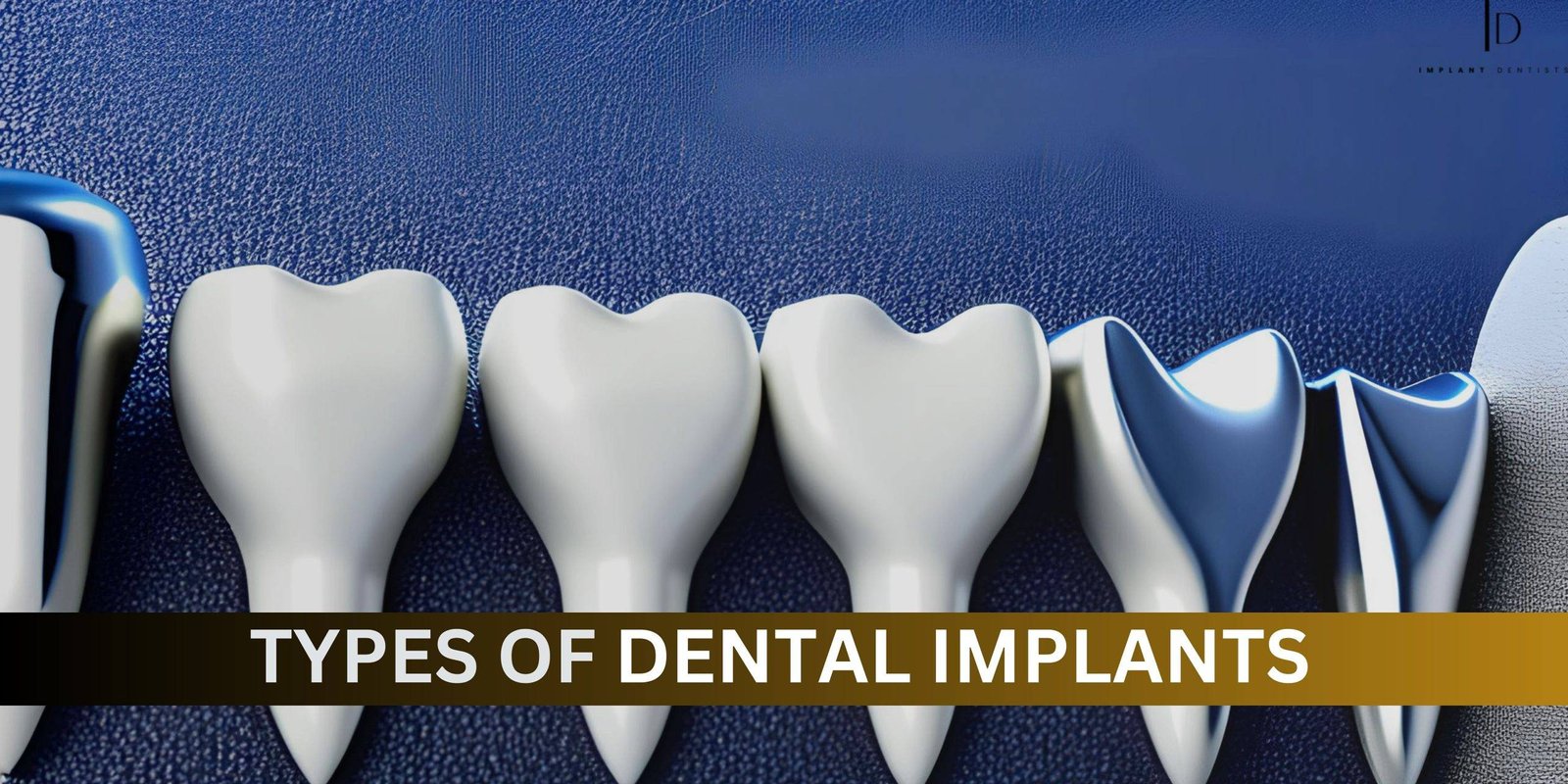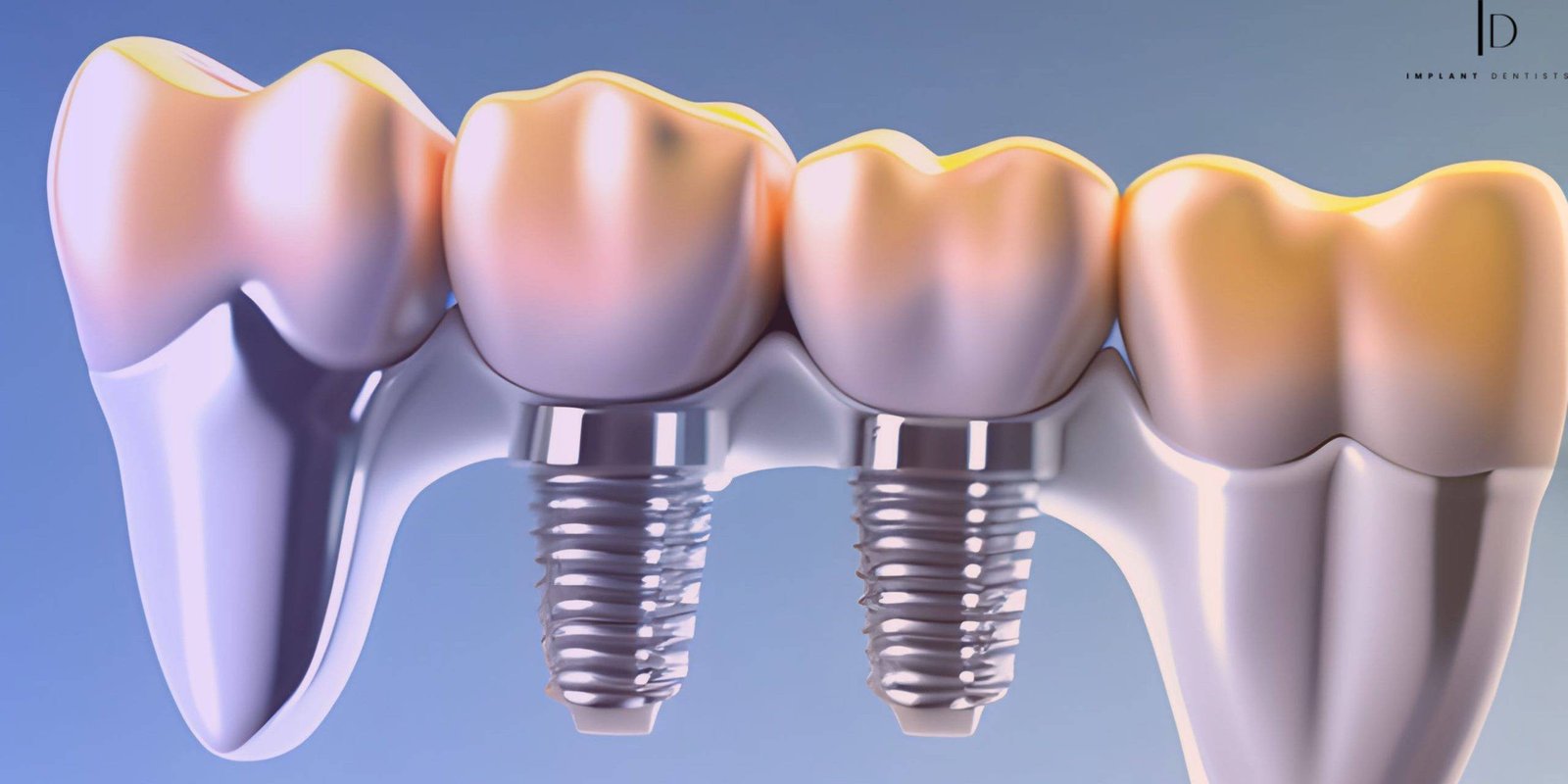Month: July 2023

How to Find the Right Denture Specialists for Your Needs
July 31, 2023When it comes to oral health and regaining a confident smile, dentures play a crucial role for individuals with missing teeth. Finding the right denture specialist is vital to ensure that you receive top-notch care and personalised solutions for your unique needs. With a multitude of dental professionals out there, the process might seem overwhelming. However, by following these practical steps, you can find the perfect denture specialist to restore your smile and oral health.
Research Local Denture Specialists
Start your search by looking for denture specialists in your local area. Seek recommendations from friends, family members, or colleagues who have had successful denture treatments. Online reviews and testimonials can also provide valuable insights into the experiences of previous patients. Create a shortlist of potential denture specialists based on your research.
Check Qualifications and Experience
When it comes to dental health, qualifications and experience matter. Look for denture specialists who are licensed and certified by relevant dental authorities. Verify their educational background and check if they have pursued advanced training in prosthodontics or denture-specific treatments. A dentist with years of experience in crafting dentures will likely have honed their skills, giving you added confidence in their abilities.
Evaluate Specialization in Dentures
Dentistry is a diverse field, and not every dentist specialises in dentures. Focus on denture specialists who primarily deal with prosthodontics, as they possess the expertise required to design, fabricate, and fit dentures effectively. Choosing a dentist who specialises in dentures ensures you are working with someone who understands the intricacies of the process, increasing the likelihood of a successful outcome.
Technology and Techniques
The dental industry is continually evolving with advancements in technology and treatment techniques. Look for denture specialists who invest in modern dental equipment and stay up-to-date with the latest practices. Advanced technology can lead to more accurate and comfortable denture fittings, enhancing your overall experience.
Consultation and Communication
Before committing to any treatment, schedule a consultation with your shortlisted denture specialists. During the consultation, observe how they communicate and listen to your concerns. A great dentist will take the time to understand your needs and explain the treatment process in a clear and compassionate manner. They should also be open to answering any questions you have about the procedure.
Review Before and After Photos
Ask the denture specialists to provide before and after photos of their previous patients. This will give you a visual representation of their work and help you gauge the quality of their dentures. A skilled denture specialist will have a portfolio of satisfied patients and showcase their ability to create natural-looking smiles.
Consider Cost and Insurance Coverage
Denture treatments can vary in cost, depending on the complexity of the case and the materials used. While it’s essential to consider your budget, prioritise the quality of care over the price. If you have dental insurance, check if the denture specialist is a part of your network to maximise your benefits.
Conclusion
Choosing the right denture specialist is a crucial step towards improving your oral health and enhancing your quality of life. Take the time to research, evaluate qualifications, and communicate with potential denture specialists before making your decision. Remember, a qualified and experienced denture specialist will not only provide you with a beautiful smile but also ensure that your dentures fit comfortably and function effectively. With the right specialist by your side, you can regain your confidence and enjoy the benefits of a healthy, radiant smile once again.

5 Tips for Finding Affordable Dental Implants
July 25, 2023Are you in need of dental implants but worried about the high costs? Dental implants can be a significant investment in your oral health and overall well-being. But finding affordable options can be challenging. However, with some research and careful planning, you can discover more budget-friendly alternatives without compromising on quality. In this blog post, we’ll provide you with five essential tips to help you find affordable dental implants.
1. Compare Prices from Different Dental Clinics
The first step in finding affordable dental implants is to do your homework. Reach out to various dental clinics in your area and inquire about their implant services’ prices. Keep in mind that the cost of dental implants may vary depending on factors such as the clinic’s location. The dentist’s expertise, and the materials used. By comparing prices, you can get a better idea of the average cost and find a clinic that offers competitive rates.
2. Look for Dental Schools and Teaching Hospitals
Dental schools and teaching hospitals often offer dental services, including dental implants, at reduced prices. Although the procedures are performed by dental students under the supervision of experienced faculty, you can rest assured that the treatment quality remains high. These institutions aim to provide affordable dental care while offering students valuable hands-on experience. If you’re comfortable with the idea of receiving treatment from a supervised student, this option can be an excellent way to save money on dental implants.
3. Inquire About Financing and Payment Plans
Dental implants’ upfront cost might seem overwhelming, but many dental clinics offer financing options and payment plans to help ease the financial burden. These plans allow you to pay for the treatment in instalments, making it more manageable for your budget. Before committing to a dental implant procedure, discuss payment options with your chosen dental clinic and choose a plan that fits your financial situation best.
4. Explore Dental Tourism
Dental tourism is an increasingly popular option for individuals seeking affordable dental treatments, including dental implants. Many countries offer high-quality dental services at significantly lower prices than in more expensive regions. If you’re open to travelling abroad for your dental implants, consider researching reputable dental clinics in countries known for their dental tourism industry. Be sure to account for additional travel expenses when weighing this option, but even with these costs factored in, you may still save money compared to getting the treatment at home.
5. Inquire About Insurance Coverage or Discount Programs
While dental implants may not be fully covered by all insurance plans, some policies offer partial coverage or discounts for certain dental procedures. Review your dental insurance policy to see if dental implants are included or if there are any relevant discounts available. If you don’t have insurance coverage for dental implants, inquire about discount programs that some dental clinics offer. These programs can significantly reduce the cost of your treatment.
Conclusion
Finding affordable dental implants may require some effort and research, but it’s well worth it for the long-term benefits to your oral health and self-confidence. Remember to compare prices from different dental clinics, explore dental schools and teaching hospitals, inquire about financing and payment plans, consider dental tourism if possible, and explore insurance coverage or discount programs. By following these five tips, you’ll increase your chances of finding a cost-effective solution for your dental implant needs without compromising on quality. Prioritise your oral health and take the first step towards a brighter smile today!

Different Types of Dental Implants: Which One is Right for You?
July 17, 2023When it comes to restoring missing teeth, dental implants have revolutionised the field of dentistry. They provide a durable and natural-looking solution that can significantly enhance your smile and improve your oral health. However, not all dental implants are the same. In this blog, we will explore the different types of dental implants available, helping you understand which one may be the right choice for you.
Understanding Dental Implants
Before diving into the specific types of dental implants, it’s important to have a basic understanding of what they are and how they work. Dental implants are artificial tooth roots made of titanium that are surgically placed into the jawbone. They serve as a foundation for replacement teeth, such as crowns, bridges, or dentures. Dental implants provide a stable and long-lasting solution, mimicking the function and appearance of natural teeth.
Traditional Implants
Traditional dental implants, also known as standard implants, are the most common type of dental implants used today. They consist of two main components: the implant itself, which is surgically placed into the jawbone, and the abutment, which connects the implant to the replacement tooth. Traditional implants are versatile and can be used to replace a single tooth, multiple teeth, or even a full arch of teeth.
Mini Implants
Mini implants are smaller in diameter compared to traditional implants. They are an alternative for patients who have limited bone density or require less invasive treatment. Mini implants can often be placed without the need for bone grafting, making them a suitable option for those with insufficient jawbone structure. While they may not be as versatile as traditional implants, mini implants can effectively support single-tooth restorations and stabilise dentures.
All-on-4 Implants
All-on-4 implants, as the name suggests, are designed to replace a full arch of teeth with just four implants. This innovative technique maximises the use of available bone and eliminates the need for individual implants for each missing tooth. All-on-4 implants offer a quicker treatment process and are an excellent option for patients who have experienced significant tooth loss or have inadequate bone volume.
Immediate Load Implants
Immediate load implants, also known as same-day implants, allow for the placement of a temporary tooth or restoration immediately after the implant surgery. This means that patients can leave the dental office with a functional tooth on the same day. Immediate load implants can be advantageous for individuals who want to avoid the inconvenience of a waiting period between implant placement and receiving their final restoration.
Zygomatic Implants
Zygomatic implants are an advanced option for patients who have severe bone loss in the upper jaw. Instead of being anchored in the jawbone, zygomatic implants are anchored in the zygomatic bone, which is denser and provides a secure foundation for the implant. This type of implant eliminates the need for bone grafting procedures, making it a viable solution for individuals with significant bone resorption.
Choosing the Right Dental Implant
Selecting the right dental implant depends on various factors, including your oral health, bone structure, and specific lost tooth replacement needs. It is essential to consult with a qualified dentist or oral surgeon who specialises in implant dentistry. They will evaluate your unique situation, perform necessary examinations, and recommend the most suitable implant option for you.
Conclusion
In conclusion, dental implants offer a reliable and aesthetically pleasing solution for individuals with missing teeth. Whether you require a single tooth replacement or a full arch restoration, there are various types of dental implants available to suit your specific needs. By consulting with a dental professional and considering factors such as bone density, oral health, and desired outcome, you can determine which type of dental implant is right for you. Remember, choosing the right implant is a crucial step towards achieving a beautiful and functional smile that can last a lifetime.

Are Dental Implants Best for You? Factors to Consider Before Making a Decision
July 10, 2023If you are considering dental implants as a solution for missing teeth, it is important to carefully evaluate whether they are the right choice for you. Best dental implants are a long-term investment in your oral health and general well-being and have a number of advantages. However, several factors should be taken into consideration before making a decision. In this article, we will explore these factors to help you determine if dental implants are the right option for you.
Surgical dentists place titanium posts, called dental implants, into the jawbone to replace missing tooth roots. These posts act as anchors for dental prostheses such as crowns, bridges, or dentures. The implant fuses with the jawbone through a process called osseointegration, providing a stable and durable foundation for the replacement teeth.
Benefits of Dental Implants
Before delving into the factors to consider, let’s first understand the benefits of dental implants:
- Improved Appearance: Dental implants enhance your smile and facial appearance by closely resembling real teeth.
- Enhanced Oral Function: Implants restore the ability to bite and chew properly, allowing you to enjoy a wider range of foods.
- Longevity: Dental implants are a long-term investment since, with proper care, they can last a lifetime.
- Preservation of Jawbone: Implants stimulate the jawbone, preventing bone loss that commonly occurs with tooth loss.
- Speech Improvement: Dental implants provide stability to dental prostheses, preventing slippage and improving speech clarity.
- Convenience: Unlike removable dentures, implants eliminate the need for adhesives and offer greater comfort and convenience.
Factors to Consider
Before proceeding with dental implants, it is crucial to evaluate the following factors:
- Oral Health
For a dental implant procedure to be effective, good oral health is crucial. Your dentist will assess the condition of your teeth and gums, looking for any signs of decay, gum disease, or infections. To ensure a healthy oral environment for the implants to thrive, treat these issues before considering implants.
- Bone Density and Structure
Sufficient bone density and quality are required for successful implant placement. During the evaluation process, your dentist will examine the jawbone to determine if it can adequately support the implants. In cases where bone density is insufficient, bone grafting procedures may be recommended to strengthen the jawbone.
- Overall Health
Your overall health plays a significant role in the success of dental implant treatment. Certain medical conditions such as uncontrolled diabetes, immune disorders, and heavy smoking can hinder the healing process and increase the risk of complications. It is crucial to discuss your medical history with your dentist to assess if you are a suitable candidate for implants.
- Commitment to Oral Hygiene
Maintaining good oral hygiene is crucial for the longevity and success of dental implants. Implants require regular brushing, flossing, and professional dental cleanings, just like natural teeth. If you are committed to maintaining excellent oral hygiene practices, dental implants can be a suitable option for you.
- Financial Considerations
Dental implants are a significant investment, and it’s essential to consider the financial aspects before making a decision. The cost of dental implants can vary depending on various factors, including the number of implants needed, any additional procedures required, and the location of the dental clinic. It is recommended to consult with your dentist and inquire about the costs involved, as well as any potential insurance coverage or financing options available.
- Time Commitment
The process of getting dental implants typically involves multiple stages and requires a certain amount of time for proper healing and integration. It is important to understand that the treatment timeline can vary from patient to patient, and it may take several months from the initial consultation to the final placement of the dental prostheses. If you are seeking a quick solution for tooth replacement, alternative options like dental bridges or dentures may be more suitable.
- Age
Age can be a factor to consider when deciding on dental implants. While there is no strict age limit for implant placement, the overall health and bone density of older individuals may affect the success rate. Younger patients tend to have better bone quality and faster healing, making them ideal candidates for dental implants. However, age alone should not disqualify someone from receiving implants, as each case should be evaluated individually.
- Lifestyle
Your lifestyle and habits can also influence the decision to get dental implants. If you are involved in contact sports or activities that carry a high risk of facial trauma, implants may be a more suitable choice than removable dentures. Additionally, if you have a habit of teeth grinding (bruxism) or clenching, your dentist may recommend additional measures to protect the implants from excessive force.
Frequently Asked Questions (FAQs)
Q: Can anyone get dental implants?
A: Dental implants are suitable for most individuals who have good oral and general health. However, certain medical conditions or habits may affect eligibility. It is best to consult with your dentist for a personalized evaluation.
Q: Are dental implants painful?
A: The dentist performs the implant placement procedure under local anesthesia, ensuring minimal discomfort. Patients may experience some mild soreness or swelling after the surgery, but they can manage it with over-the-counter pain relievers.
Q: How long do dental implants last?
A: Dental implants have the ability to last a lifetime if properly maintained and subjected to routine dental exams. However, the longevity can vary depending on individual factors such as oral hygiene practices and overall health.
Q: Are dental implants covered by insurance?
A: Dental insurance coverage for implants can vary. Some insurance plans may partially cover the cost of implants, while others may not cover them at all. It is advisable to check with your insurance provider to determine your coverage options.
Q: Is the dental implant procedure safe?
A: Surgery to place dental implants is a proven and secure method. Complications are rare but can include infection, implant failure, or nerve damage. Choosing an experienced and qualified dentist significantly reduces the risks.
Conclusion
Deciding whether dental implants are right for you requires careful consideration of various factors. Your oral health, bone density, overall health, commitment to oral hygiene, financial situation, time availability, age, and lifestyle are all important aspects to evaluate. By discussing these factors with your dentist, you can make an informed decision about whether dental implants are the best choice for your lost tooth replacement needs. Remember, dental implants offer numerous benefits, including improved appearance, enhanced oral function, longevity, preservation of jawbone, speech improvement, and convenience. However, it is crucial to weigh these advantages against the specific factors that apply to your situation. With proper evaluation and guidance from your dentist, you can make a decision that aligns with your oral health goals and leads to a confident and beautiful smile.

Enhance Your Oral Health Journey & Replace Missing Teeth with Dental Implants
July 3, 2023A bright and healthy smile can do wonders for your self-confidence and overall well-being. However, missing teeth can significantly impact your oral health and quality of life. If you’re seeking a long-term solution to replace missing teeth, affordable dental implants offer a remarkable option that can enhance your oral health journey. In this blog post, we will explore the benefits of dental implants and how they can transform your smile.
Dental implants are titanium replacement tooth roots that are surgically inserted into the jawbone. They provide a sturdy foundation for replacement teeth, such as crowns or dentures. The implant fuses with the natural bone through a process called osseointegration, ensuring a secure and long-lasting solution.
Restore Your Smile and Confidence
The capacity of dental implants to restore your smile and increase your self-confidence is one of its most important benefits. Unlike other tooth replacement options, such as dentures or bridges, dental implants look and feel like natural teeth. They are custom-made to match the colour, shape, and size of your existing teeth, ensuring a seamless and natural appearance. With dental implants, you can confidently smile, laugh, and speak without worrying about gaps or slipping prosthetics.
Preserve Bone Health and Facial Structure
When a tooth is missing, the underlying jawbone can deteriorate over time. This bone loss can lead to a sagging facial appearance and an increased risk of additional tooth loss. Dental implants stimulate the jawbone, just like natural tooth roots, promoting bone growth and preserving the overall facial structure. By maintaining the integrity of the jawbone, dental implants prevent the sunken look often associated with missing teeth and provide long-term stability.
Improved Speech and Eating Experience
Missing teeth can significantly impact your ability to speak clearly and enjoy certain foods. Dentures or bridges may offer some improvement, but they can be uncomfortable and restrict your ability to enunciate or taste food fully. Dental implants eliminate these concerns by acting as natural teeth. With dental implants, you can confidently communicate and savour all your favourite meals, enhancing your overall quality of life.
Durability and Longevity
Dental implants are made to last a lifetime with proper care and maintenance, unlike other tooth replacement choices. Traditional dentures and bridges may require regular adjustments or replacements, which can be time-consuming and costly. Dental implants, on the other hand, are highly durable and resistant to decay. By investing in dental implants, you are investing in a long-term solution that will significantly reduce the need for future dental interventions.
Improved Oral Health
Dental implants not only replace missing teeth but also contribute to improved oral health. Unlike traditional tooth-supported bridges that require adjacent teeth to be ground down, dental implants do not impact neighbouring teeth. This preservation of natural teeth allows for better oral hygiene practices and easier access between teeth, reducing the risk of gum disease and cavities. By opting for dental implants, you can maintain a healthier mouth and enjoy the benefits of a complete smile.
Consultation and Care
If you are considering dental implants to enhance your oral health journey, it’s crucial to consult with a qualified and experienced dentist. They will evaluate your oral health, discuss your treatment options, and create a personalised plan tailored to your needs. Dental implant surgery is typically performed in multiple stages, ensuring optimal healing and success.
In conclusion, affordable dental implants are a game-changer for those seeking a permanent solution to missing teeth. By restoring your smile, preserving bone health, and improving your overall oral health, dental implants offer a multitude of benefits that can transform your life. Take the first step towards a confident and healthy smile by consulting with a dental professional who can guide you on your dental implant journey. Remember, a beautiful smile is within reach with the help of dental implants!
